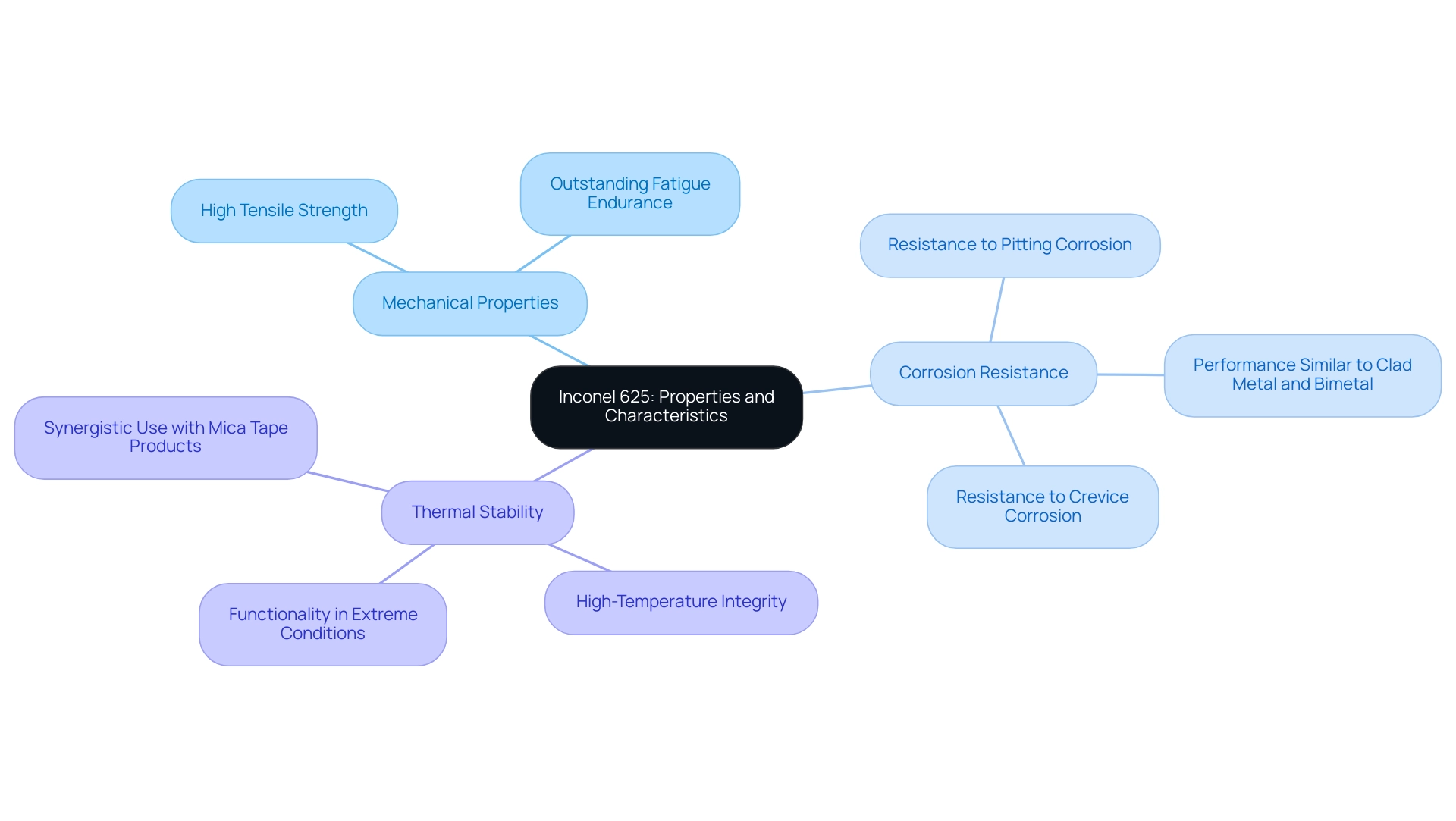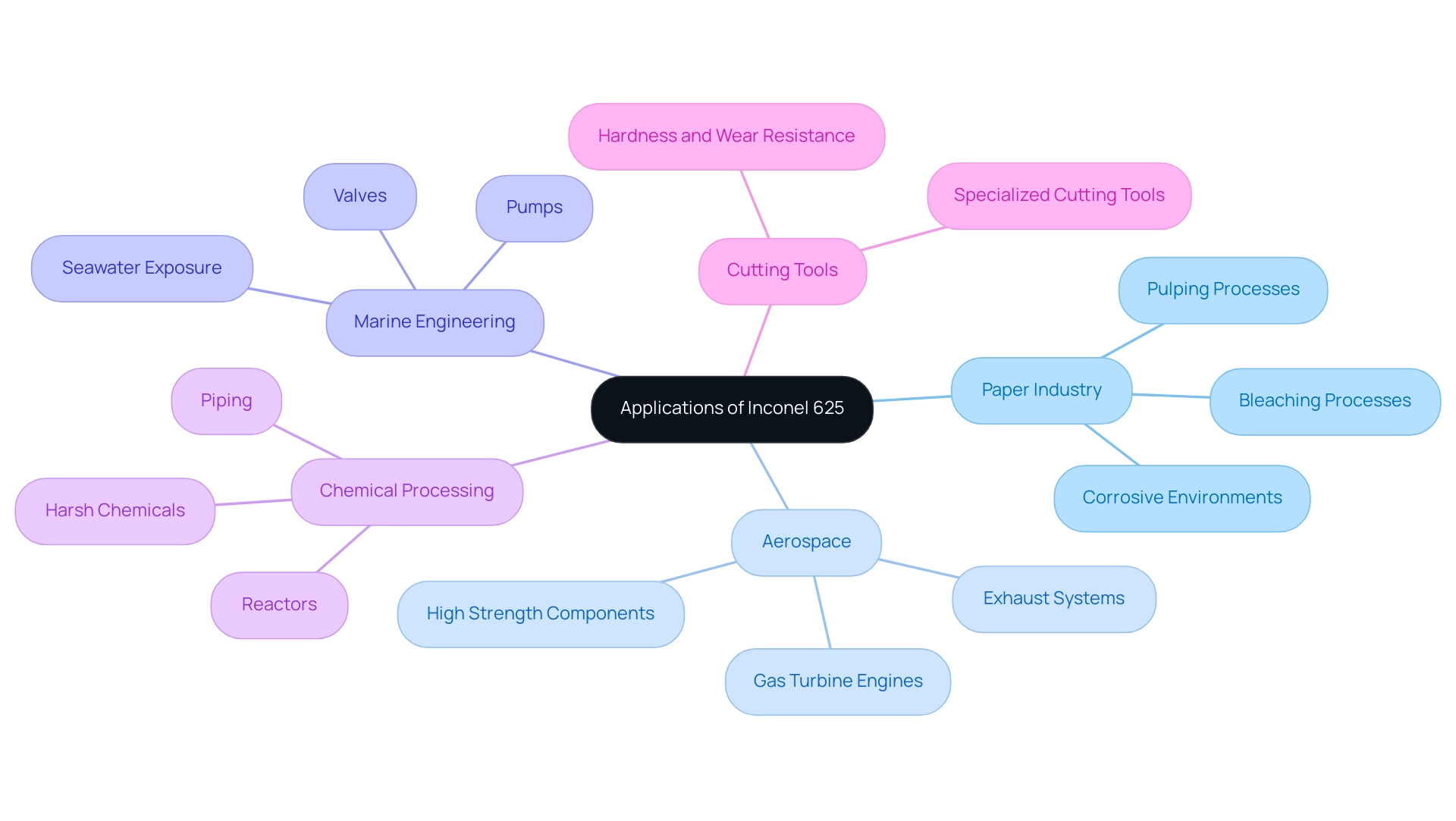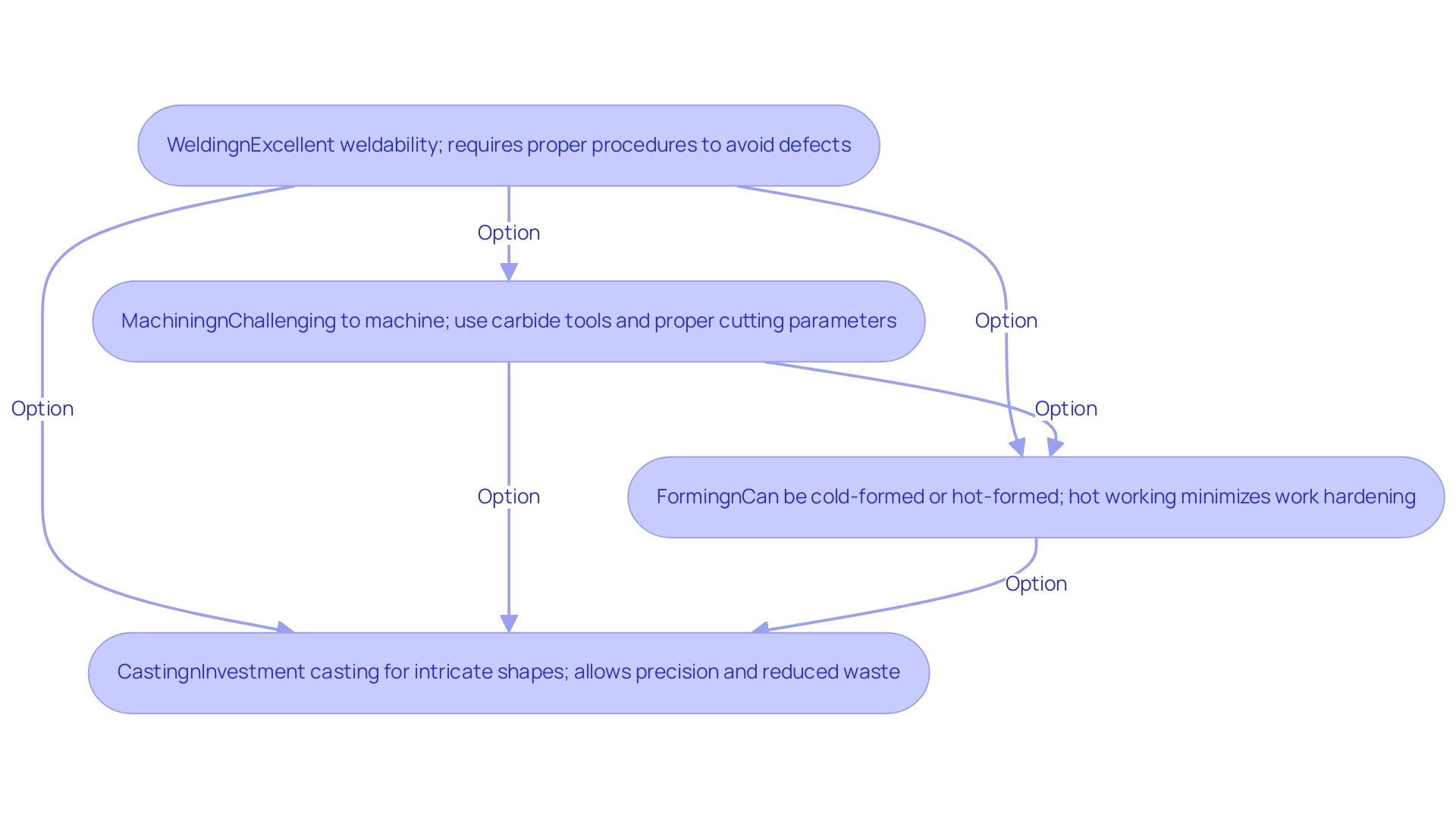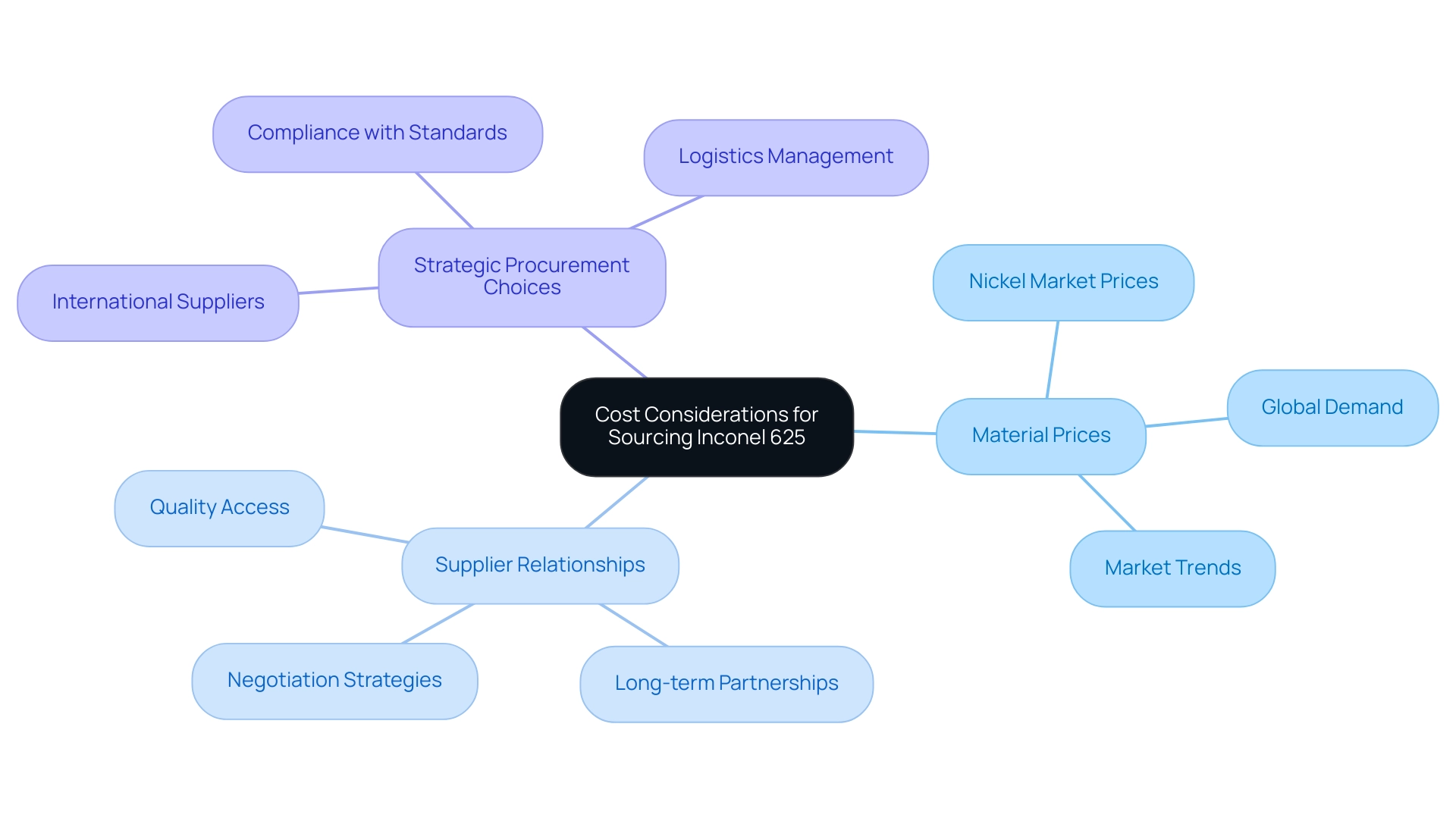Blogs

Understanding Inconel 625 Alloy: A Complete Tutorial on Properties and Applications
Introduction
Inconel 625 stands out as a premier nickel-chromium alloy, celebrated for its remarkable properties that cater to the most demanding industrial applications.
With a unique composition that includes a substantial percentage of nickel and chromium, this alloy excels in high-temperature environments and offers unparalleled resistance to corrosion, making it a vital material across various sectors.
From the aerospace industry to chemical processing, Inconel 625’s mechanical strength and thermal stability ensure its reliability in challenging conditions.
As procurement professionals navigate the complexities of sourcing materials, understanding the multifaceted advantages of Inconel 625, alongside its manufacturing processes and cost considerations, becomes essential for strategic decision-making and achieving long-term success.
Introduction to Inconel 625: Properties and Characteristics
Inconel 625 alloy is a nickel-chromium material renowned for its exceptional durability against high temperatures and oxidative environments. The inconel 625 alloy features a composition that contains around 58% nickel, 20% chromium, 9% molybdenum, and a minor percentage of iron, providing robust strength and excellent durability against corrosion.
Mechanical Properties: The inconel 625 alloy demonstrates high tensile strength and outstanding fatigue endurance, making it suitable for challenging applications, especially in hostile environments where durability is essential.
Corrosion Resistance: The inconel 625 alloy is particularly resistant to pitting and crevice corrosion, which is essential for uses exposed to aggressive chemicals and seawater. This is similar to the exceptional corrosion resistance and mechanical properties observed in Clad Metal and Bimetal uses, which enhance performance through strategic material bonding.
Thermal Stability: The high-temperature stability of inconel 625 alloy ensures that it maintains its integrity and functionality even in extreme conditions, similar to the reliability found in Domadia’s Mica Tape products designed for high-temperature electrical insulation.
The precision manufacturing processes employed in creating the inconel 625 alloy further enhance the alloy’s performance, ensuring that it meets the most demanding requirements in industrial applications.
These combined properties make inconel 625 alloy a preferred choice for various industrial applications, ensuring reliability and longevity in service, while also positioning it among the elite options in high-temperature and corrosion-resistant materials. Furthermore, the use of Mica Tape products alongside nickel-chromium alloys in high-temperature environments underscores the importance of selecting materials that work synergistically to enhance overall performance.

Applications of Inconel 625: From Paper Industry to Cutting Tools
In a wide range of industries, Inconel 625 alloy is utilized due to its superior properties. Key applications include:
- Paper Industry: Used in manufacturing equipment that operates in corrosive environments, such as pulping and bleaching processes.
- Aerospace: Applied in components that require high strength and thermal stability, such as exhaust systems and gas turbine engines.
- Marine Engineering: Ideal for components exposed to seawater, including pumps and valves, due to its excellent corrosion resistance.
- Chemical Processing: Employed in piping and reactors that handle harsh chemicals, ensuring durability and safety.
- Cutting Tools: The inconel 625 alloy is also utilized in specialized cutting tools, where its hardness and resistance to wear enhance performance and longevity.
These applications illustrate the alloy’s versatility and why it remains a critical material in many industries, making it a valuable consideration for procurement professionals.

Manufacturing Processes Involving Inconel 625
Alloy 625 can be processed using several manufacturing techniques, including:
- Welding: The material has excellent weldability, which allows for various welding methods, including TIG and MIG welding. Proper procedures must be followed to avoid defects.
- Machining: Due to its toughness, this alloy can be challenging to machine. Using carbide tools and proper cutting parameters is critical to achieving desired tolerances.
- Forming: The alloy can be cold-formed or hot-formed, depending on the desired final shape. Hot working is often favored to minimize the risk of work hardening.
- Casting: Investment casting is a prevalent technique for creating intricate shapes in inconel 625 alloy, allowing for precision and reduced waste.
Grasping these processes aids procurement professionals in ensuring the quality and specifications of inconel 625 alloy during the sourcing of materials.

Comparative Advantages of Inconel 625 over Other Alloys
Inconel 625 provides several benefits over other common alloys, such as:
- Corrosion Protection: Inconel 625 surpasses many stainless steels and other nickel-based alloys in terms of defense against pitting and stress corrosion cracking.
- Temperature Capability: The inconel 625 alloy retains mechanical properties at elevated temperatures, making it superior to alloys that may lose strength under heat.
- Versatility: Unlike some specialized alloys, the inconel 625 alloy is effective in a wide range of settings, from marine uses to chemical processing.
- Fatigue Strength: Inconel 625 alloy has a high fatigue durability that ensures longevity in components subjected to cyclic loading, making it ideal for aerospace and automotive sectors.
These comparative benefits illustrate why inconel 625 alloy is a preferred material in high-performance uses. Likewise, our Mica Tape Products, such as Mica Insulation Tape, Mica Tape for Electrical, and Mica Sheet Tape, offer crucial high-temperature protection and electrical insulation. Mica Insulation Tape is designed for high-temperature resistance, ensuring reliability in various uses, while Mica Tape for Electrical offers excellent flame resistance and dielectric strength, crucial for fire-resistant cables.
Mica Sheet Tape is robust enough for insulating large flat surfaces in challenging environments. For procurement managers, understanding the synergy between alloy 625 and these mica tape products enhances strategic sourcing decisions, ensuring the selection of optimal solutions for electrical insulation and high-temperature applications.

Cost Considerations and Sourcing Inconel 625
When sourcing alloy 625, several cost considerations must be evaluated:
- Material Prices: Prices for alloy 625 can fluctuate based on nickel market prices and global demand. Staying informed about market trends is essential.
- Supplier Relationships: Building strong supplier relationships can lead to better pricing and access to quality materials. Long-term partnerships often yield favorable terms. Investing in high-quality Inconel 625 alloy may incur higher upfront costs but can lead to reduced failures and longer service life, ultimately saving money in the long run. Consideration of international suppliers may provide competitive pricing, but compliance with international standards and logistics must be managed carefully. These considerations will assist procurement managers in making strategic choices when sourcing Inconel 625 alloy, ensuring alignment with organizational goals.

Conclusion
The multifaceted advantages of Inconel 625 make it an indispensable alloy for various demanding industrial applications. Its exceptional mechanical properties, including high tensile strength and fatigue resistance, ensure reliability in environments where durability is paramount. Coupled with its superior corrosion resistance, particularly in aggressive chemical and marine settings, Inconel 625 stands out as a material of choice for industries such as aerospace, chemical processing, and marine engineering.
Understanding the manufacturing processes associated with Inconel 625 is vital for procurement professionals. From welding to machining and casting, each method offers unique benefits that can enhance the alloy’s performance in specific applications. Moreover, the comparative advantages of Inconel 625 over other alloys, such as stainless steels, further underscore its position as a high-performance option capable of withstanding extreme conditions while maintaining integrity.
As procurement managers navigate sourcing strategies, recognizing the cost considerations associated with Inconel 625 is essential. Fluctuating material prices, the importance of supplier relationships, and the impact of quality assurance all play critical roles in ensuring that the investment in this premium alloy yields long-term benefits. By making informed decisions, procurement professionals can leverage the strengths of Inconel 625, ultimately achieving strategic objectives and enhancing operational success across their organizations.




